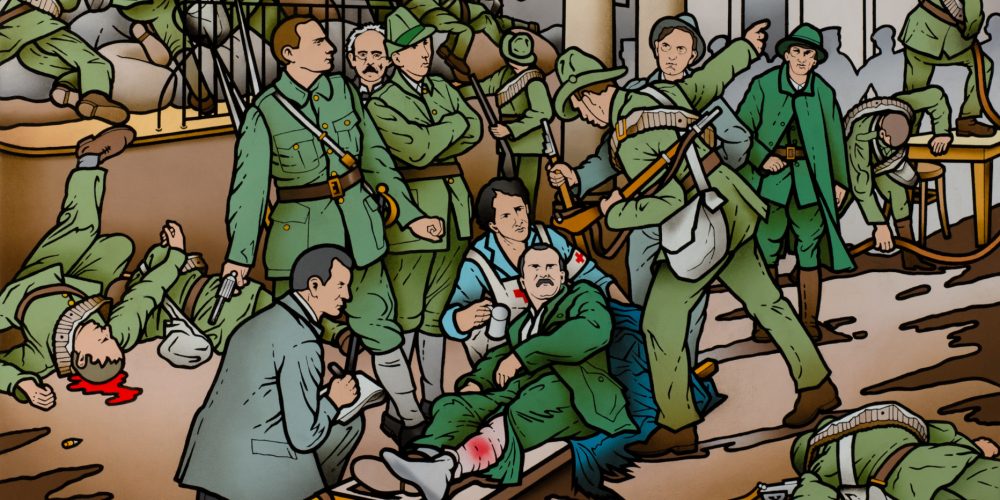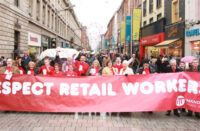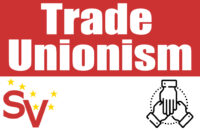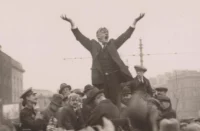On 1 March 2019 the Employment (Miscellaneous Provisions) Act (2017) will come into effect. This is to be welcomed; it is a step in the right direction for workers’ rights.
We must always be aware that we are up against a formidable enemy in capitalism. The nature of capitalism is to secure maximum profit, and the introduction of this act will slow down the exploitation of workers. It certainly will not stop it.
Employers will always find new ways to get around laws. Under this legislation, workers will have to keep their heads down for twelve months in order to secure a decent number of hours for their contract. Work of a “casual nature” is exempt, and of course short-term contracts are still legal.
This legislation was achieved in no small part as a result of the strike by members of Mandate in Dunne’s Stores. This goes to show that nothing is gained by workers without a struggle. The legislation is a victory for workers and their unions; it improves conditions, in that secure hours = better future.
It does not, however, give workers power. Fianna Fáil and others in the establishment are willing (when forced) to give in and support legislation such as this; but they will fight tooth and nail against any change in the law that would tip the balance of power towards labour and away from capital.
One of the main strategies of the neo-liberal project is to weaken the trade union movement. This has been achieved in large part through anti-worker legislation, for example the Industrial Relations Act (1990). The winning of this new legislation should mark the beginning of rebuilding labour’s power.
We still don’t have full collective bargaining rights, union recognition, or the right of access. Achieving these would give real power to workers, to enable them to fight for much more and put us firmly in the driving seat of workers’ demands.
If the working class are to regain any of the lost ground we must organise to have all anti-labour legislation repealed. This will give us back the power to take on the Government and employers. We must organise and push our demands much further than everyday work issues in order to raise class-consciousness, to build union membership and labour power.
Before the last budget SIPTU drew attention to the amount of money that was being lost to the exchequer from the special VAT rate for the tourism industry. The Government itself admitted that an extra €520 million could have been raised if the rate had been increased to 13½ per cent for 2018, and that a total of €2.6 billion had been lost to the exchequer since its introduction.
This is an industry that is making a profit ranging from €23,000 per hotel room in Dublin to €11,000 in the west of Ireland. These losses to the exchequer exclude all the money invested by the state in tourism and in advertising Ireland abroad—all done to boost the tourism industry and its private profits.
What the state should be doing is investing this money in state-owned hotels, restaurants and other facilities so that 100 per cent of the profits, and not just a small proportion, would go to the exchequer rather than into private hands. These profits would be reinvested in more hotels and a state tourist industry to further boost the state’s income, rather than subsidising privately owned companies.
It’s the very same situation as in housing, where the state subsidises landlords, builders and ultimately private profits instead of building public housing for the citizens to live in.
Unions, instead of scratching the surface by demanding higher VAT for hotels, must push much further by calling for the public ownership of industry for the benefit of society. There is little point in having motions on privatisation passed at union conferences unless these policies are actively pursued afterwards.
In recent years the only thing the state took into public ownership was private banking debt. At the same time waiting-lists for hospitals and housing exploded, because of “austerity” cuts. Rents have gone through the roof, while nurses are on poverty wages. The privateers get all the gains as the citizens are forced into the precariousness of private rented accommodation.
Bus Éireann, which is threatened with the loss of a further 10 per cent of routes as the state attempts to privatise public transport, is told that profitable commercial routes, such as Expressway, cannot be used to subsidise the public transport service. This is the other end of the neo-liberal project, as the state withdraws from the provision of public services, choosing to surrender these income streams to private owners.
Who in Ireland will complain if we subsidise health, education and housing from profits that at present are taken by the capitalist class, to the detriment of the citizens? We must attack capitalism itself for more radical and profound change that will transform society for the common good.
We have paid dearly at the hands of Fine Gael and Fianna Fáil. So, as the centenary of the first Dáil approaches, it’s time we got off our knees in a united front of unions, communities, republicans and socialists and fought for system change, to rid Ireland once and for all of the gombeenmen who seized power after the Rising.






